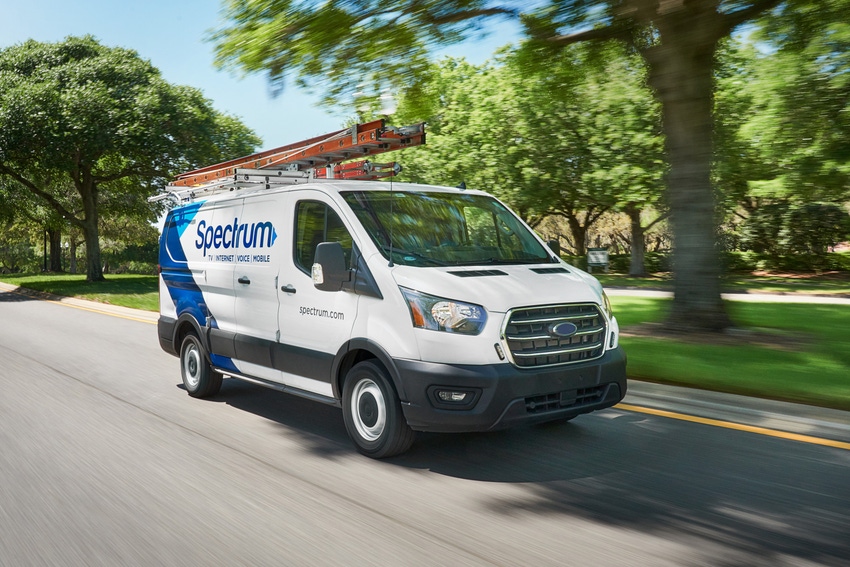Charter sheds more broadband subs than expected as mobile line growth decelerates
Charter lost 72,000 broadband subs in Q1 2024 and faces more pressure amid the likely end of the Affordable Connectivity Program. Meanwhile, the company's mobile business is growing, just at a slower rate.

Charter Communications lost more broadband subscribers than expected in the first quarter of 2024 and saw its rate of mobile line subscriber growth slow.
Charter is also bracing for the likely end of the Affordable Connectivity Program (ACP), a scenario that will have a short-term impact on the company's broadband business.
Charter lost 72,000 broadband subs in the quarter, compared to a gain of 67,000 a year ago, ending the period with 28.47 million subs. Analysts were expecting Charter to lose about 44,000 broadband customers in Q1.
Speaking on Friday's earnings call, Charter CEO Chris Winfrey said broadband subscriber growth continues to be hindered by low housing move activity, historically low churn, elevated competition and the specter of ACP's demise.
Return to growth … eventually
Winfrey said he is optimistic that Charter's broadband business will return to growth eventually, but he didn't predict when that turnaround will begin.
Notably, the pace of growth from fixed wireless access (FWA) competition is starting to slow, based on the Q1 results of Verizon and T-Mobile. That's reason for optimism, according to MoffettNathanson analyst Craig Moffett.
"With FWA now clearly on the downslope, we believe the headwinds to Cable broadband very likely peaked in Q4 of last year," Moffett explained in a research note (registration required) issued following Charter's earnings call.
Charter is the cable operator most exposed to the likely end of the ACP. The bulk of its 5 million ACP recipients were already getting broadband service from the company, with many using the subsidy to get a faster speed tier.
Charter CFO Jessica Fischer said the company expects to keep the "vast majority" of its ACP recipients as customers as the company puts forth multiple lower-cost alternatives, such as its Spectrum Internet Assist product.
But the end of ACP will result in some subscriber losses, put pressure on broadband average revenue per user (ARPU) and increase bad debt (non-pay) expense. That impact should be limited to Q2 and Q3, Fischer said.
'Unprecedented' event
ACP's likely end is an "unprecedented" event for the industry, Winfrey said. While it's hard to predict the precise impact, the situation will not impact Charter's long-term revenue potential, he said.
Charter's subsidized, rural buildout initiative continued as it added 73,000 passings in Q1, extending the project's total to 493,000. Charter added 35,000 customers from its rural initiative in the quarter, for a total of 177,000.
Charter still expects to complete its Rural Digital Opportunity Fund (RDOF) build by the end of 2026, two years ahead of schedule. The company is also on track to activate 450,000 new, subsidized rural passings in 2024, 60% more than those built in 2023.
Charter is also making progress on its hybrid fiber/coax (HFC) upgrade initiative. It is offering symmetrical speeds of 300 Mbit/s, 500 Mbit/s and 1 Gbit/s in a tranche of phase one markets that are going with "high-split" upgrades that beef up the amount of spectrum dedicated to the upstream.
Second-phase markets will include distributed access architecture (DAA) upgrades and enable speeds up to 5 Gbit/s downstream by 1 Gbit/s upstream. Phase three markets, which include DOCSIS 4.0 network upgrades, will support 10-Gig/1-Gig speeds and allow Charter to offer targeted fiber-to-the-premises (FTTP) upgrades from the node.
Charter expects to complete its HFC upgrade program in 2026 at a cost of $100 per home passed.
Spectrum Mobile grows
Charter tacked on 486,000 mobile lines (473,000 residential and 13,000 business), extending its total to 8.25 million (7.99 million residential and 260,000 business). But analysts were expecting Charter to add 540,000 mobile lines in Q1. The company added 546,000 mobile lines in the prior quarter and 686,000 in the year-ago period.
Charter notched Q1 mobile revenues of $685 million, up from $497 million a year earlier.
To spark growth in the category and to move upmarket in mobile, Charter recently launched an "anytime upgrade" program for mobile alongside a $5 per month per device repair/replacement program.
"We will have a lot of room to grow our mobile business," Winfrey said, noting that less than 8% of Charter's total passings take its home broadband/mobile bundle.
Charter has also been able to keep a sizable majority of the mobile customers it gained from Spectrum One as more of those customers start to roll off the home broadband/mobile promotion that included a free line of mobile for a year.
"The incremental growth that they captured with Spectrum One is sticking," Moffett noted, adding that both broadband and wireless ARPU (average revenue per user) will rise as more customers roll off of the promotion.
Pay-TV remains a sore spot. Charter lost 405,000 video subs (392,000 residential and 13,000 business), lowering its total to 13.71 million (13.11 million residential and 606,000 business). That loss was much higher than the -242,000 expected by analysts.
First quarter total revenues were flat (+0.2%) at $13.67 billion. Charter shares were down $5.08 (-1.96%) to $254.02 each in Friday morning trading.
About the Author(s)
You May Also Like












